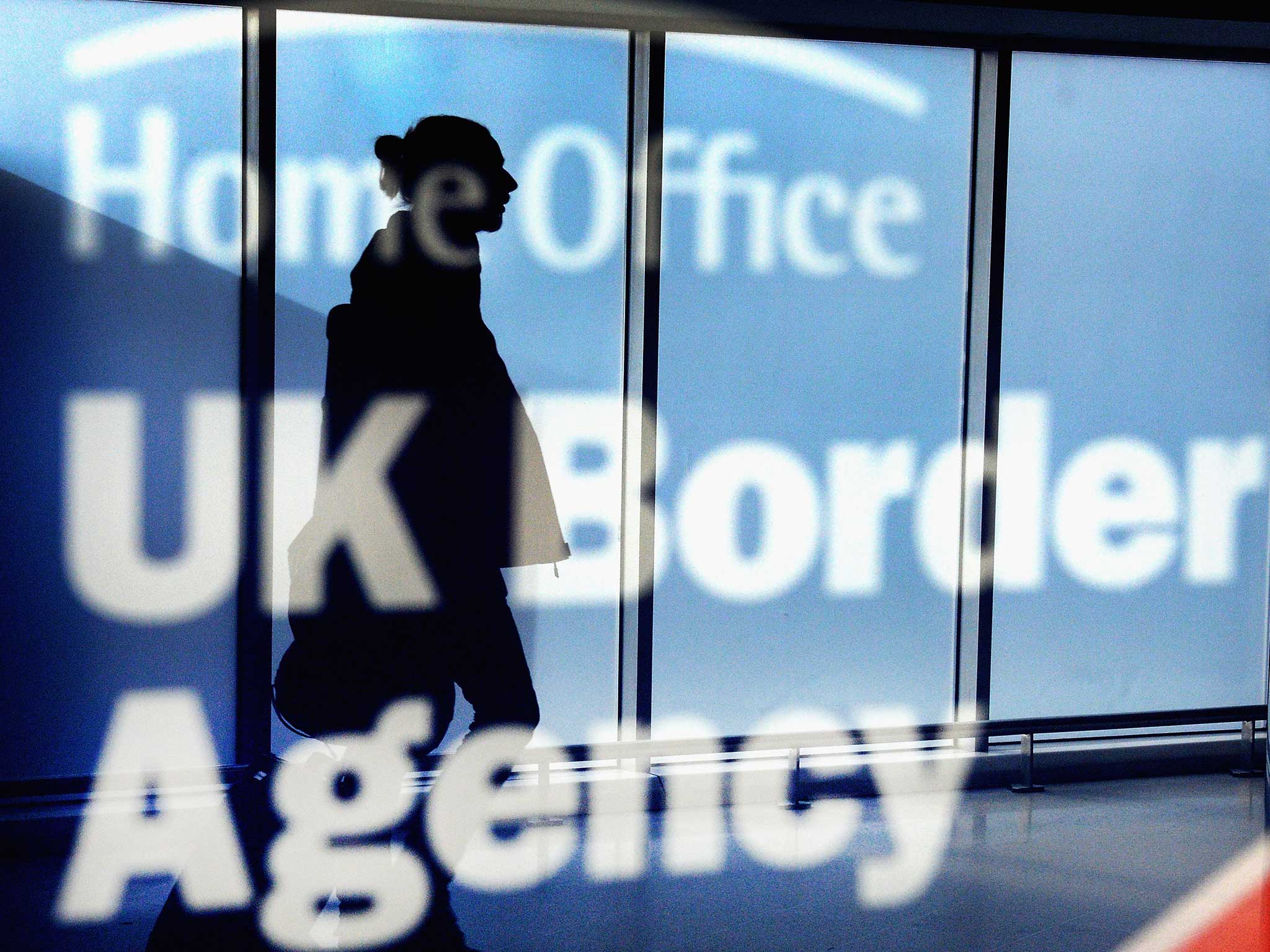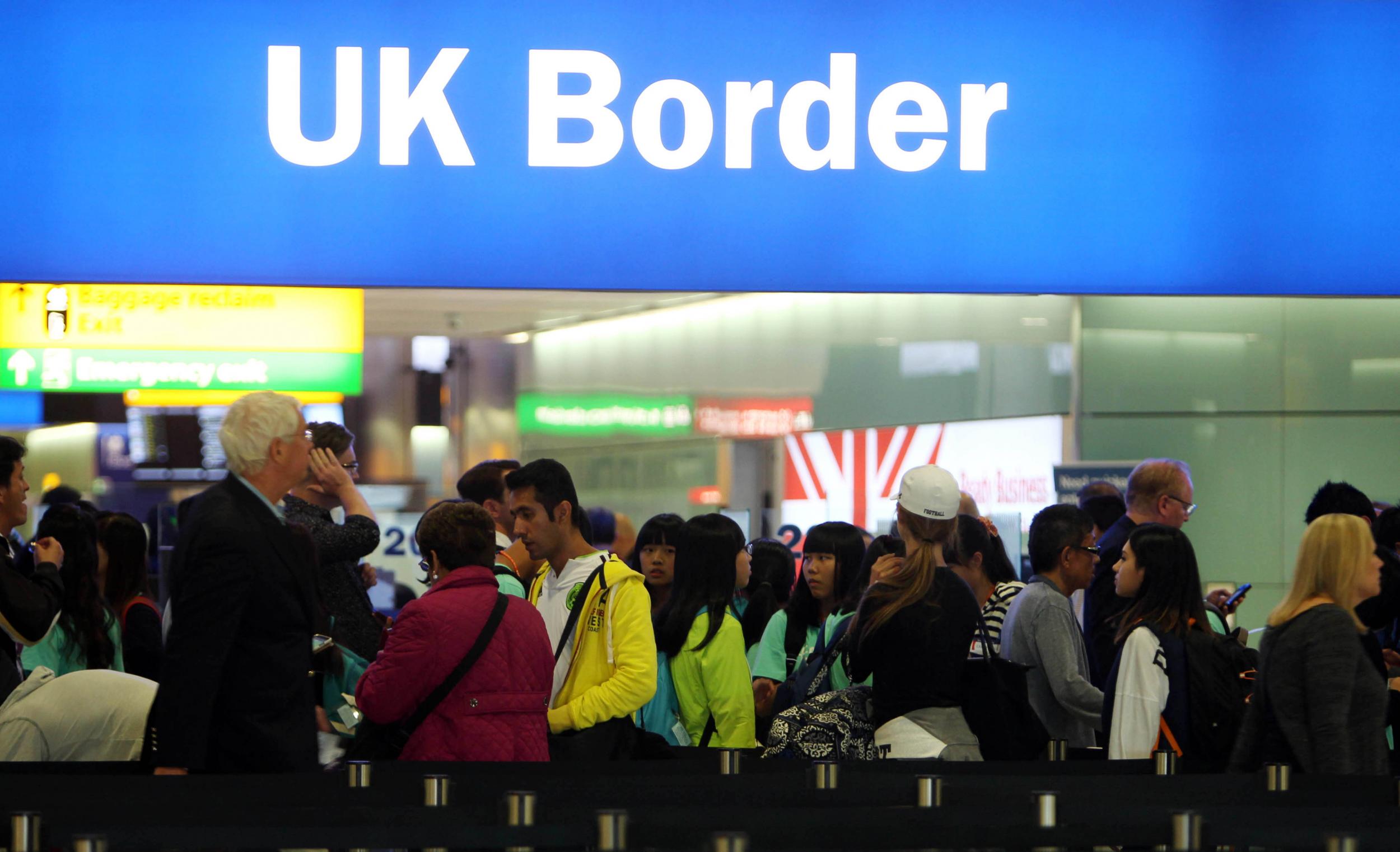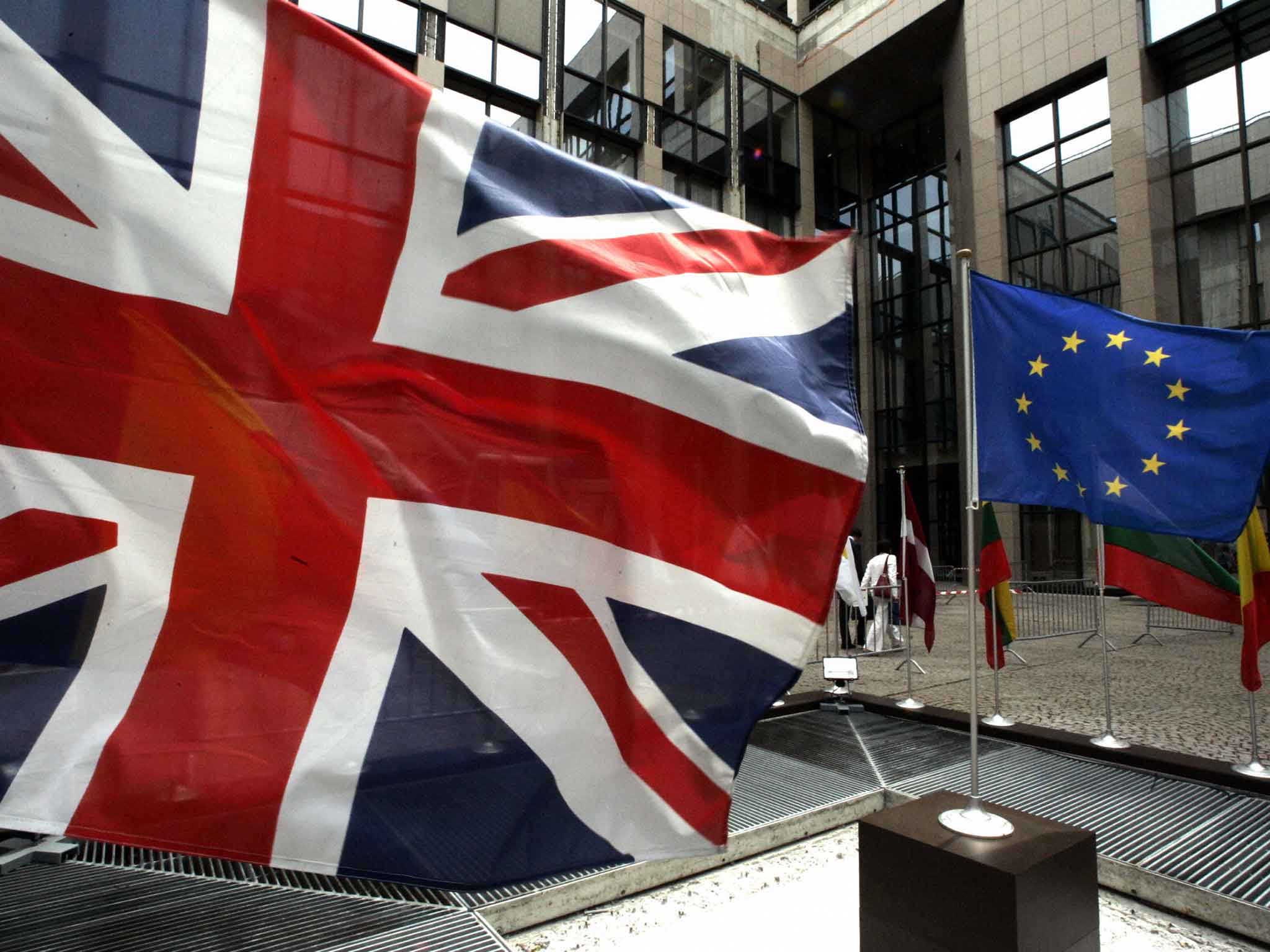Migration Watch UK claim that leaving EU would cut net migration by 100,000 a year dismissed as 'disingenuous'
Pro-EU campaigners accused the group of 'fudging the facts', while analysts questioned the report's methodology

Your support helps us to tell the story
From reproductive rights to climate change to Big Tech, The Independent is on the ground when the story is developing. Whether it's investigating the financials of Elon Musk's pro-Trump PAC or producing our latest documentary, 'The A Word', which shines a light on the American women fighting for reproductive rights, we know how important it is to parse out the facts from the messaging.
At such a critical moment in US history, we need reporters on the ground. Your donation allows us to keep sending journalists to speak to both sides of the story.
The Independent is trusted by Americans across the entire political spectrum. And unlike many other quality news outlets, we choose not to lock Americans out of our reporting and analysis with paywalls. We believe quality journalism should be available to everyone, paid for by those who can afford it.
Your support makes all the difference.A pressure group has claimed leaving the European Union could reduce net migration to the UK by 100,000 a year.
Migration Watch UK claimed its research gave a realistic forecast of post-“Brexit” immigration but pro-EU campaigners slammed the report as a “disingenuous” take on “fudged facts”.
Its analysis estimated that expected changes including tighter restrictions on people coming to the UK for work could see net migration from the bloc - the difference between the numbers of people arriving and leaving - fall from its current level of 180,000 a year to around 65,000.
Lord Green of Deddington, the chairman of Migration Watch UK, said “alternative immigration regimes” should be examined.

“Under the current arrangements all the signs are that EU migration to Britain will continue at a substantial rate for the foreseeable future; indeed, immigrants tend to generate further migration as their friends and relatives join them in their new countries,” he added.
“Work permits for EU citizens would substantially reduce net migration and its resultant pressure on our population and public services.”
His group’s report suggested the key change if Britain votes to leave the union should be the introduction of permits which would only allow in EU workers in higher-skilled occupations, in a similar scheme to that currently governing arrivals from outside Europe.
The 16-page paper said that on average, only around 20 per cent of EU migrants who came to Britain between 2004 and 2014 were doing higher skilled work.
Claiming the argument that a Brexit would not affect migration relied on remaining in the European Economic Area (EEA), Migration Watch UK argued the country could exit both unions in favour of a “new settlement”.

The authors concluded that there would be no need for restrictions on EU students or tourists, and that “self-sufficient” migrants would also be free to live in Britain.
European family members would also be allowed to join British citizens in the UK, as would relatives of “skilled” EU workers.
Migration Watch UK admitted that its prediction of future EU net migration of 65,000 should not be taken as a “precise estimate” but was “intended to illustrate the scale of the potential reduction under the policy outlined”.
The Government's record on immigration has come under intense scrutiny in the run-up to next year’s referendum on the UK’s membership of the EU, with overall net migration reaching a record annual level of 336,000 in the latest statistics.
Lord Rose, chairman of “stay” campaigners Britain Stronger in Europe, previously said immigration ”isn't going to go away” if the country leaves.
James McGrory, a spokesperson for the group, dismissed Migration Watch UK’s latest report as a “disingenuous…example of the Leave campaigns fudging the facts because they know they're losing the argument”.
"Freedom of movement isn't on the ballot paper - and neither Leave campaign even proposes ending it,” he added.
"Right now, Britain has the best of both worlds. We have an opt-out from the passport-free Schengen area, while still enjoying full access to the single market.
"The Leave campaigns haven't produced a shred of evidence to show how they could guarantee a deal that is at least as good if we left"
Migration Watch UK said its report does not advocate exiting from or remaining in the EU, but the group has become associated with an anti-immigration stance because of its numerous negative reports with headlines including “Immigration is driving Londoners out of their capital” and “Immigrants have cost the tax payer over £140 billion since 1995”.
University College London researchers whose statistics were previously used to argue that “immigrants cost Britain £3,000 a year each” criticised Migration Watch UK’s “sloppy or simply wrong” conclusions based on “serious misinterpretation” of the original research.
Danny Shaw, the BBC’s home affairs correspondent, was among those poking holes in its latest report today.
“No-one knows for sure what impact a British exit from the EU would have on immigration,” he pointed out.
“But say, as Migration Watch advocates, that it did herald controls on the flow of low-skilled EU migrant labour, would that really work in reducing net migration?
“Wouldn't there be an influx of migrants from the EU before the restrictions came into force?”
“Wouldn't businesses that currently rely on labourers, chambermaids and supermarket shelf-stackers from Europe demand that they be allowed to recruit them from elsewhere?”
“And wouldn't the EU introduce work permits for British workers, thereby reducing emigration from the UK?”
Additional reporting by PA
Join our commenting forum
Join thought-provoking conversations, follow other Independent readers and see their replies
Comments